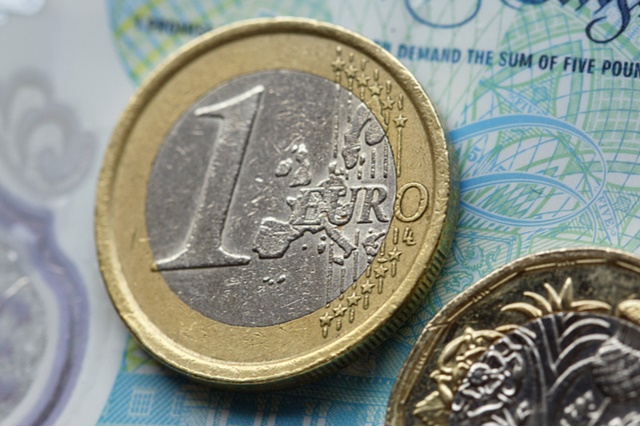Pound Sterling Euro (GBP/EUR) Exchange Rate Left Muted as Government Borrowing Soars
The Pound Sterling Euro (GBP/EUR) exchange rate remained flat on Friday morning. This left the pairing trading at around €1.1176.
The Pound was left flat today after data revealed that the UK’s government borrowed the most on record last month. Public debt in Britain was pushed close to 100% of economic output.
Borrowing jumped to £62.1 billion – six times higher compared to borrowing in April 2019. Sentiment was further dampened after March’s borrowing was upwardly revised to almost £15 billion due to the country’s furlough scheme.
Commenting on this, Samuel Tombs, Pantheon Macroeconomics’ economist said:
‘We still think that public borrowing will equal about 15% of GDP this year – greatly exceeding the 10% peak in the 2008-to-09 recession even if a second virus wave is avoided.’
Sterling also remained under pressure after data revealed retail sales plummeted by the most on record.
The country’s retail sector was hit by the government’s coronavirus lockdown measures in April. This saw sales volumes tumble by -18.1%.
GBP was left muted as some analysts have said they do not expect there to be a rapid bounce-back for British retailers once the lockdown is lifted.
According to ING economist, James Smith:
‘Recent surveying from YouGov showed that just under half of people would be uncomfortable with returning to a clothing shop, although the jury is out on whether the public will become more relaxed by the time retailers do reopen next month.’
Euro (EUR) Flat After €500 Billion Recovery Fund Optimism Gains
The single currency was left flat on Friday morning after a week of gains as optimism about a closer fiscal union in Europe increased amongst investors.
France and Germany proposed a €500 billion recovery fund to offer grants to regions and sectors in the bloc hit the hardest by the coronavirus crisis.
This raised hopes the European Central Bank (ECB) policymakers would take more decisive steps to tackle the coronavirus crisis.
Although Thursday’s PMI data showed the devastating impact of the coronavirus pandemic on the Eurozone’s economy.
This did not have a significant impact on the single currency as the Eurozone PMI composite remained firmly in contraction territory despite rebounding from April’s all-time low.
According to Jessica Hinds at Capital Economics:
‘The big picture is that the index is consistent with economic activity in the region remaining very depressed even as lockdown measures are being gradually lifted.’
Pound Euro Outlook: Has Germany Plunged into a Recession?
Looking ahead to Monday, the Euro (EUR) could suffer losses against the Pound (GBP) following the release of German data.
If final German GDP data reveals the country has gone into a recession in the first quarter, EUR will slide.
The single currency could suffer further losses following the release of Ifo’s business climate data.
If German business climate fails to edge as high as forecasts, it will leave the Pound Euro (GBP/EUR) exchange rate trading higher.


Comments are closed.